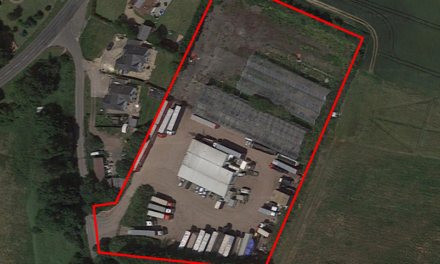Luke McMath, partner in Blandy & Blandy Solicitors’ residential property team, explains the Stamp Duty holiday and changes announced by the Chancellor Rishi Sunak and looks at the potential savings for property buyers.
In his mini budget on July 8, 2020, Chancellor, Rishi Sunak, confirmed the immediate introduction of a Stamp Duty ‘holiday’ for those purchasing residential properties before March 31, 2021.
The current situation
In England, prior to the Chancellor’s announcement, Stamp Duty Land Tax (SDLT) was normally paid on bought land or property valued at £125,000 or more.
Stamp Duty rates are normally charged on a ‘sliced’ basis, meaning that the rate increases for higher value properties as follows and that multiple rates may be applicable for different proportions of a property’s value:
|
Portion of a property’s value |
SDLT rate (percentage) that applies to this portion |
|
£125,001-£250,000 |
2 |
|
£250,001-£925,000 |
5 |
|
£925,001-£1.5 million |
10 |
|
£1.5m + |
12 |
The announcement means that until March 31, 2021 anyone purchasing a main property valued at under £500,000 (including first time buyers, who have been exempt on paying SDLT up to £300,000 and have paid five per cent on any portion between £300,000 and £500,000) will pay no SDLT. Buyers of higher value properties will pay a reduced amount of SDLT, saving £15,000.
How much can a buyer save?
The table below sets out the potential SDLT savings that buyers completing between July 8, 2020 and March 31, 2021 stand to make as a result of the newly introduced Stamp Duty holiday.
|
Property purchase price |
Normal Stamp Duty (SDLT) charge |
Stamp Duty (SDLT) charge between July 8, 2020 and March 31, 2021 |
|
Under £125,000 |
– |
– |
|
£250,000 |
£2,500.00 |
– |
|
£350,000 |
£7,500 |
– |
|
£450,000 |
£12,500 |
– |
|
£500,000 |
£15,000 |
– |
|
£600,000 |
£20,000 |
£5,000 |
|
£750,000 |
£27,500 |
£12,500 |
|
£1m |
£43,750 |
£28,750 |
|
£2m |
£153,750 |
£138,750 |
The impact
A Stamp Duty holiday will no doubt help to stimulate a property market significantly affected by the Covid-19 pandemic and an extended period of lockdown, as well as the resulting ongoing economic uncertainty.
However, we are concerned that the step may lead many people to bring forward moves that may have happened later in 2021 and beyond, creating a sharp spike in demand and activity but leaving the market quieter and perhaps below normal levels in the second half of next year.
On the day of the announcement, Luke McMath appeared on BBC Radio Berkshire to discuss the changes.
You may also find the firm’s recent blog articles, The Housing Market: Predictions for 2020 – 2021, Firm’s Survey Shows Estate Agents Confident That Region’s Housing Market Will Recover and Law Firm’s Findings Suggest That Property Developers Remain Positive of interest.
Visit www.blandy.co.uk.
© Thames Tap No 218 (powered by ukpropertyforums.com). Please rate this article out of five stars below. You can comment too, using the form at the bottom of the page.














